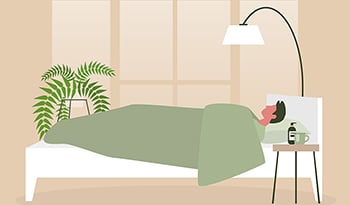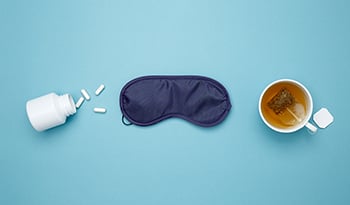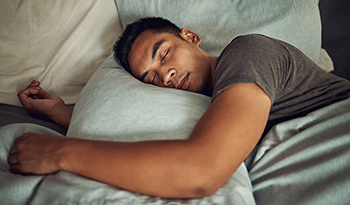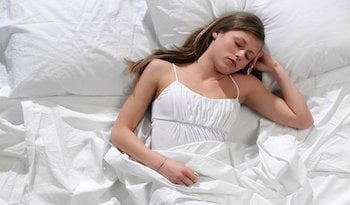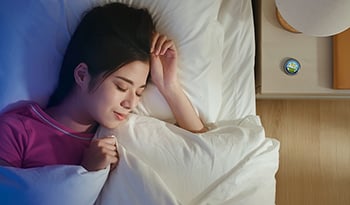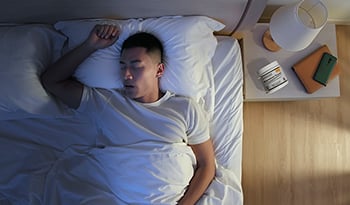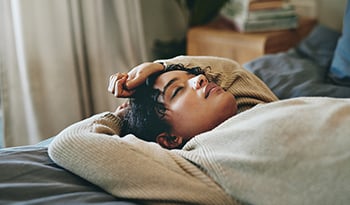5 Science-Approved Habits For Better Sleep
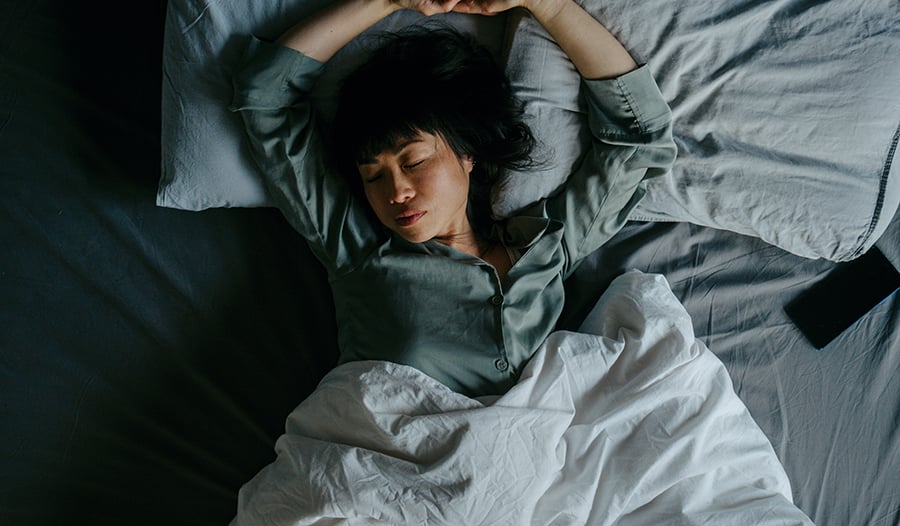
Why Quality Sleep Matters More Than Ever
As a physician and researcher, I’ve witnessed how poor sleep quietly undermines both physical and mental health. Today, millions of people in the U.S. fail to get enough sleep on a regular basis, according to the Centers for Disease Control and Prevention (CDC).1 This can lead to less focus, energy, and mental health throughout the day.
The good news is that most people’s quality of sleep can be restored without the use of medications. Drawing upon my years of clinical experience and current scientific research, the following five habits can help your body learn to sleep better instantly.
1. Develop A Consistent Sleep-Wake Pattern
Your body recognizes an internal clock known as the circadian rhythm: a 24-hour clock that regulates your sleep-wake pattern. Waking up and sleeping at the same time each day (even weekends) helps reinforce this rhythm, allowing you to fall asleep faster and sleep more soundly in the long term.
In a 2017 Scientific Reports study2, scientists found that irregular sleep timing was associated with lower grades and reduced daytime alertness.
Note: Even a one-hour variation in sleeping time can throw off your circadian rhythm, so try to maintain your schedule as consistently as possible.
2. Avoid Exposure To Blue Light At Night
We’ve all heard about blue light-blocking glasses. But do they actually work? Well, here’s the truth. Blue light wavelengths are emitted by electronic devices and energy-efficient light bulbs and are activating like a sunrise on a clear day. They are particularly disruptive to melatonin secretion, the hormone that regulates the sleep cycle. In The Journal of Clinical Endocrinology & Metabolism3, tests have been conducted to confirm that nighttime exposure to blue light may inhibit melatonin secretion and postpone sleep.
What to do: Switch off indoor lighting in the evenings and switch off devices at least one hour prior to sleep. Substitute scrolling on social media with calming, screen-free activities like reading or stretching.
3. Don't Ignore Magnesium
Can one supplement magically fix your sleep problems? No, but many of them may certainly help. Magnesium is involved in over 300 biochemical processes within the body, from brain health to relaxation and REM sleep.*
Magnesium isn’t going to knock you out at night, but it may support sleep quality, and certain forms like magnesium-l-threonate in Magtein actually increase REM sleep.* However, it’s not only magnesium supplements that do the trick. Good food sources of magnesium are leafy greens, pumpkin seeds, legumes, and nuts.
4. Choose A Book, Not A Screen
We all know it, but we often don’t follow this one. As I mentioned, blue light could certainly limit your sleep quality. However, it doesn’t end there. Screens actually overstimulate the brain prior to sleep, making it hard to relax before bedtime.
Instead, reading a book can be a great way to unwind after a long day. One study shows that bibliotherapy – a therapeutic form of reading – affects mental health positively, including the ability to reduce emotional distress.4
Taking even 5-10 minutes before bed to read a great book can instantly help you relax, supporting sleep quality along the way and helping you fall asleep faster.
5. Prepare Your Sleep Area
Your bedroom must encourage sleep, not discourage it. Perfect conditions are a cooler temperature (approximately 65°F or 18°C), complete darkness, and little noise. Simple things like blackout curtains, a ventilation fan, or a white noise machine can make a tremendous difference in your ability to fall—and stay—asleep.
The Recipe For A Perfect Night’s Sleep
Great sleep doesn’t require a prescription. It just requires rhythm, some consistent habits, and an environment that works with your biology, not against it. These five research-backed habits are an excellent starting point. Individually and combined over time, they can assist your body in regaining its normal ability to sleep soundly, recover quickly, and wake up ready to take on the day.
References:
- Adjaye-Gbewonyo D, Ng AE, Black LI. Sleep difficulties in adults: United States, 2020. National Center for Health Statistics Data Brief, no 436. Published June 2022. https://www.cdc.gov/nchs/products/databriefs/db436.htm
- Phillips, A.J.K., Clerx, W.M., O’Brien, C.S. et al. Irregular sleep/wake patterns are associated with poorer academic performance and delayed circadian and sleep/wake timing. Sci Rep 7, 3216 (2017). https://doi.org/10.1038/s41598-017-03171-4
- Sarah L. Chellappa, Antoine U. Viola, Christina Schmidt, Valérie Bachmann, Virginie Gabel, Micheline Maire, Carolin F. Reichert, Amandine Valomon, Thomas Götz, Hans-Peter Landolt, Christian Cajochen, Human Melatonin and Alerting Response to Blue-Enriched Light Depend on a Polymorphism in the Clock Gene PER3, The Journal of Clinical Endocrinology & Metabolism, Volume 97, Issue 3, 1 March 2012, Pages E433–E437, https://doi.org/10.1210/jc.2011-2391
- Lin, X. (2024). A Systematic Review on Bibliotherapy and Its Effectiveness in Psychotherapeutic Dimension. Transactions on Social Science, Education and Humanities Research, 11, 733-740. https://doi.org/10.62051/cv1qbw13
DISCLAIMER:This Wellness Hub does not intend to provide diagnosis...
















































































 Table of Contents
Table of Contents



